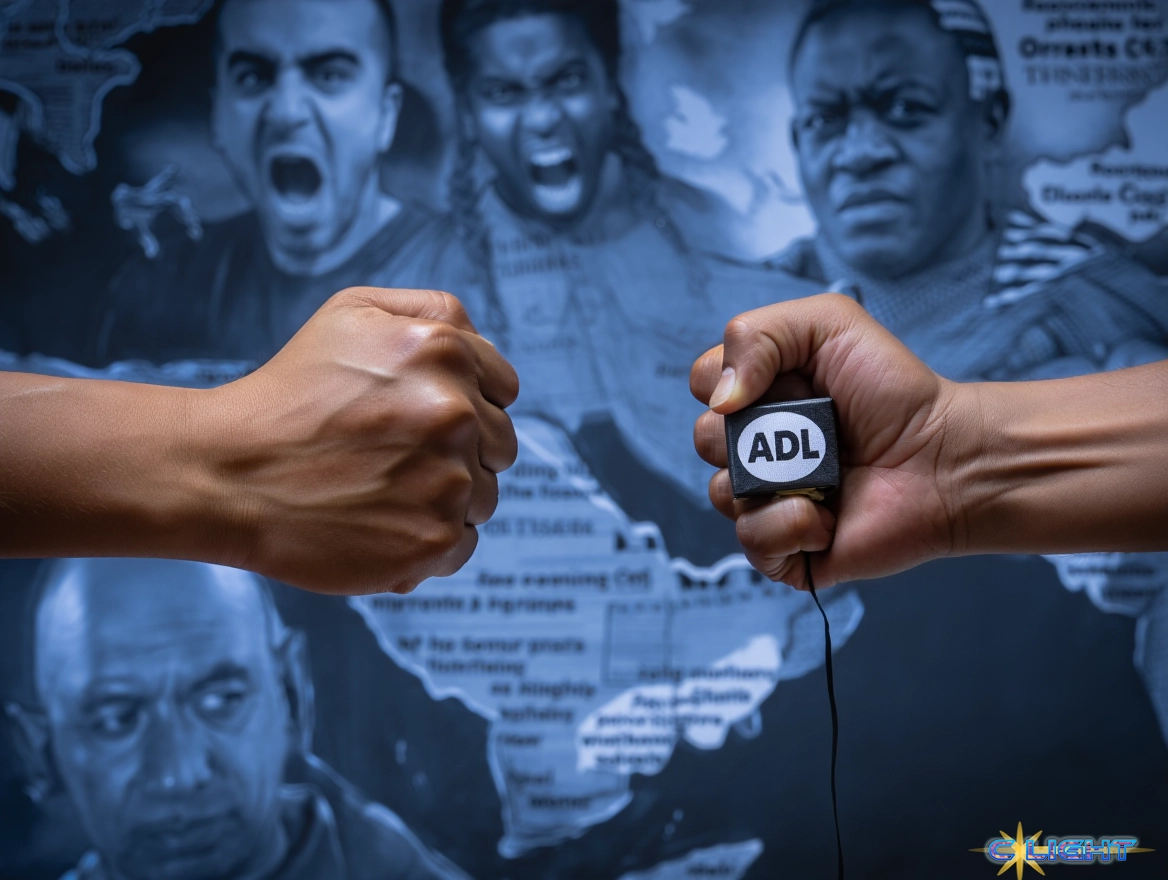In the contentious arena of American social discourse, few battles are as fraught and ultimately self-defeating as the public rupture between the National Education Association (NEA) and the Anti-Defamation League (ADL). This is a conflict where, by all appearances, no one is truly winning. Instead, the stubborn entrenchment of deeply held dogmas on both sides and a collective unwillingness to accept honest criticism risks nothing less than giving hate more room to grow. Neither the NEA nor the ADL, in their current posture of mutual antagonism, is effectively helping its own cause; rather, they are perpetuating a damaging cycle of accusation and counter-accusation that only exacerbates an already difficult subject.
The NEA, the nation’s largest teachers’ union, recently voted to sever ties with the ADL, prohibiting the use and endorsement of its educational materials and programs. This decision, emerging from a highly charged Representative Assembly on July 6, 2025, was driven by vocal segments of the union, including its Educators for Palestine caucus. They argue that the ADL, despite its long-standing civil rights reputation, is not a genuine “social justice educational partner.” Their criticisms are pointed: they accuse the ADL of “abusing the term ‘antisemitism’ to punish critics of Israel,” leveraging “hyperinflated statistics on hate crimes” to incite fear, and unfairly labeling advocacy for Palestinian rights as “hate speech.” The sentiment, as expressed by one delegate, is that “Allowing the ADL to determine what constitutes antisemitism would be like allowing the fossil fuel industry to determine what constitutes climate change.”
Specific allegations underscore this stance. Critics claim the ADL has historically undermined anti-racist movements, including those for Black liberation and against apartheid. They point to ADL CEO Jonathan Greenblatt’s controversial statements, allegedly equating some pro-Palestinian protesters with extremist groups and linking Black Lives Matter leaders who support the Boycott, Divestment, and Sanctions (BDS) movement to bigotry. Furthermore, the ADL is accused of actively targeting educators; in one instance in Massachusetts, the ADL allegedly manipulated internal union materials to falsely accuse teachers of “glorifying terrorists,” reportedly leading to doxxing and threats against union members. The NEA’s action is portrayed by its proponents as a necessary step to ensure that educational content is free from what they perceive as biased, politically-driven agendas that conflate legitimate criticism of Israel with antisemitism.

From the ADL’s perspective, the NEA’s move is “profoundly disturbing” and part of a “radical, antisemitic agenda.” They view it as a brazen attempt to isolate Jewish educators and students, particularly at a time when antisemitism is alarmingly on the rise. Indeed, FBI data from 2023 shows that anti-Jewish bias accounted for over two-thirds of all religion-based hate crimes in the U.S., making it the most targeted religious group by a significant margin. The ADL contends its educational programs are crucial tools for combating this hate and supporting Jewish communities, asserting its unwavering commitment to Israel and the fight against antisemitism. In their view, to question their statistics or methods is to downplay a very real threat. In their urge to be defensive, they risk, as critics contend, crossing the very lines they accuse the NEA of crossing, equating any severe criticism of Israeli policy or even anti-Zionism with antisemitism, thereby inadvertently alienating potential allies and intensifying the division.
This unyielding back-and-forth highlights a profound failure of dialogue. The ADL, once a nearly singular voice in Jewish anti-hate advocacy, now faces challenges from diverse Jewish and non-Jewish organizations that hold differing views on Israel, Zionism, and the parameters of antisemitism. What might be happening is that the ADL is no longer the ‘only game in town’ for Jews and Israeli citizens – two distinctly different groups of people with decisively different viewpoints. As other non-Zionist groups step up, advocating for human rights and justice, the ADL may feel increasingly under siege, prompting defensive reactions that, ironically, can solidify the very criticisms leveled against it.

The NEA-ADL split is a microcosm of a larger societal polarization that extends far beyond the confines of professional organizations. It mirrors broader struggles within progressive movements to reconcile support for Palestinian rights with the imperative to combat antisemitism. Neither the NEA nor the ADL appears willing to genuinely listen to the critiques posed by the other side, becoming entrenched in their given dogmas. This stubbornness creates a vacuum, allowing the most extreme voices to dictate the narrative and ensuring that, even if the Gaza war were to end today, the complaints and deep-seated distrust would persist.
There is a strong, urgent need to find some mutual ground and grow around that shared understanding. Unfortunately, the current leadership on both sides seems unwilling to take that path. The consequence is not a victory for either organization, but a deepening of societal division and a perilous environment where hate, instead of being curtailed, is inadvertently given more room to proliferate. For the sake of honest debate, clarity in education, and a genuine fight against all forms of bigotry, the imperative is for a courageous leadership that can transcend ideological purity and forge a path towards mutual understanding and effective action.
Discover more from Clight Morning Analysis
Subscribe to get the latest posts sent to your email.










